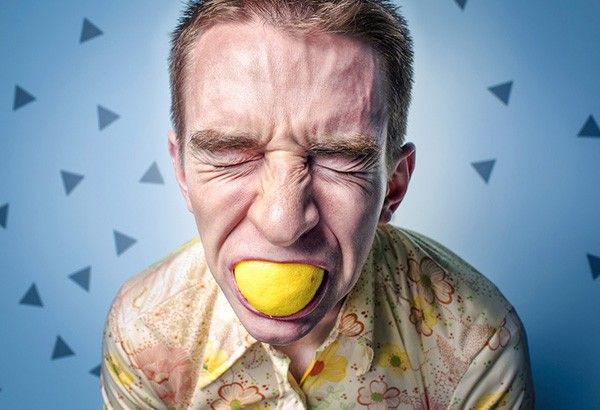GCQ or 'Eat-CQ'? 5 tips to stop ‘stress eating’

MANILA, Philippines — Due to the ongoing pandemic, do you tend to eat to make yourself feel better?
If you do, then what you are doing is “stress” or “emotional” eating, registered dietitian and weight management specialist Susan Bowerman said at the recent “Herbalife Nutrition Virtual Tea Party - Healthy Snacking with Susan Bowerman” webinar.
“People eat for a range of emotions, not only for stress. It could be for anxiety, depression. Some people said even when they’re happy! So almost every emotion could trigger eating a lot,” Bowerman defined “emotional eating.”
Experience, don’t feed, the emotion
The best way to prevent emotional eating, said Bowerman, is to deal with the problem or the cause of the anxiety and not to use food as scapegoat.
“When it comes to that negative emotion in particular, I think that some people are afraid of experiencing the emotion. They anticipate that the pain, anxiety, is going to become so much worse that they kind of stuff the emotion down with food,” explained Bowerman, who is also Senior Director for Worldwide Nutrition and Education and Training at Herbalife Nutrition.
“Let the emotion to wash over them, which is a hard thing to do at first. It really helped because number one, they would realize that it’s not as bad as they thought it is and the other key to that is do live out judgement. In other ways, don’t judge them, don’t think about is it good, is it bad, just deal with it. Just let it come over you.”
According to her, food, like drugs, can only temporarily relieve stress.
"It only relieves the anxiety at that moment when you’re eating. You know, it doesn’t really treat it, and so the anxiety comes back. If I get more anxious, I’d eat, and it becomes a vicious cycle. I realize that it’s easier said than done, but I realize that that’s the first thing, try to learn how to experience the emotion.”
Binging on healthy food doesn’t help either
If you think that using healthy food for emotional eating is better, then you’re wrong, said Bowerman.
“I’m not a big fan of telling people, ‘Well, instead of eating chocolate, eat something healthy.’ The reason for that is if we substitute one thing for another, we’re really not fixing the problem. What you’re doing is you’re still eating to relieve the stress. You might be eating something better, but you’re still eating to relieve the stress.”
Calm yourself five minutes before you eat
“Second, you have to tell yourself you’re going to wait five minutes before you eat. That actually works because in five minutes, you can get distracted and forget that you’re going to eat,” she assured.
Go for healthier habits instead
Instead of diet modification for the same purpose of stress eating, Bowerman recommended behavior modification. That means that if you are anxious or stressed, it is better to call a friend, meditate, walk around a block, make a cup of tea or write in a journal, than to eat to let the stress out.
“When you’re feeling a little stress, go out and get some endorphins. It’s better to get alternative activities,” she vouched.
“Snacking in itself is not a bad habit, it’s the unhealthy snacks people consume that makes it so. These unhealthy snacks include high-calorie sweets, chips, fried foods and sugary drinks, and they are often consumed for emotional reasons or out of habit and not hunger.”
Why you shouldn't skip snacking
Bowerman, however, pointed out that snacking, when done correctly, can be a healthy habit as it can help prevent overeating at meals, can help reduce total calorie intake for the day, provides an opportunity to work in more servings of healthy foods, and helps you maintain physical and mental energy.
“To make your snacking habit healthy, make sure that your snacks are balanced with protein and healthy carbohydrates, have enough calories and protein to last until your next meal or snack and, of course, make sure they taste good,” Bowerman said. “Choose nutrient-dense foods instead of calorie-dense foods.”
Nutrient-dense foods such as lean proteins, vegetables, fruits, whole grains and beans contain a lot of nutrition per bite, while calorie-dense foods such as fried foods, candies, sodas and desserts have more calories per bite.
“Snack on foods that are rich in protein to help control your hunger and include good carbohydrates which contain fiber, vitamins, minerals, and phytonutrients,” Bowerman advised.
Foods that are rich in protein include milk, cottage cheese, yogurt, low-fat cheese, lean meat, poultry, fish, eggs, cooked lentils or beans, and nuts or nut butter. Fruits, vegetables and whole grains, meanwhile, are rich in carbohydrates.
Examples of healthy snacks that are rich in protein and carbohydrates, according to Bowerman, include vanilla yogurt topped with fruit, hard-boiled egg with sliced tomato, roasted soy nuts with a piece of fruit, whole grain bread with nut butter and a cup of vegetable soup with low-fat cheese.
According to her, even she is guilty of stress eating “from time to time,” but she encouraged everyone to do “small steps” to avoid emotional eating because doing such “can also make us prevent unwanted calories over time.”
RELATED: WATCH: Flattening the curves: Doctor shares weight management tips



















